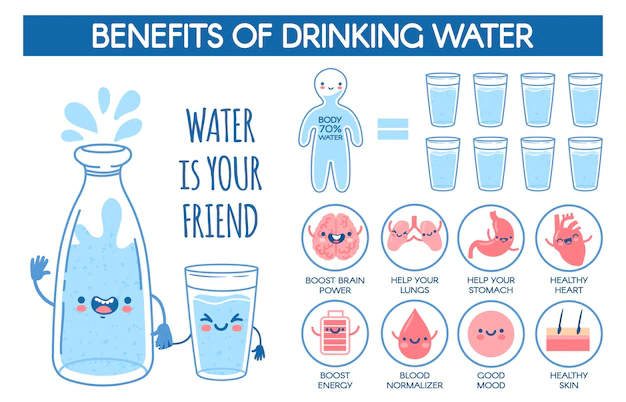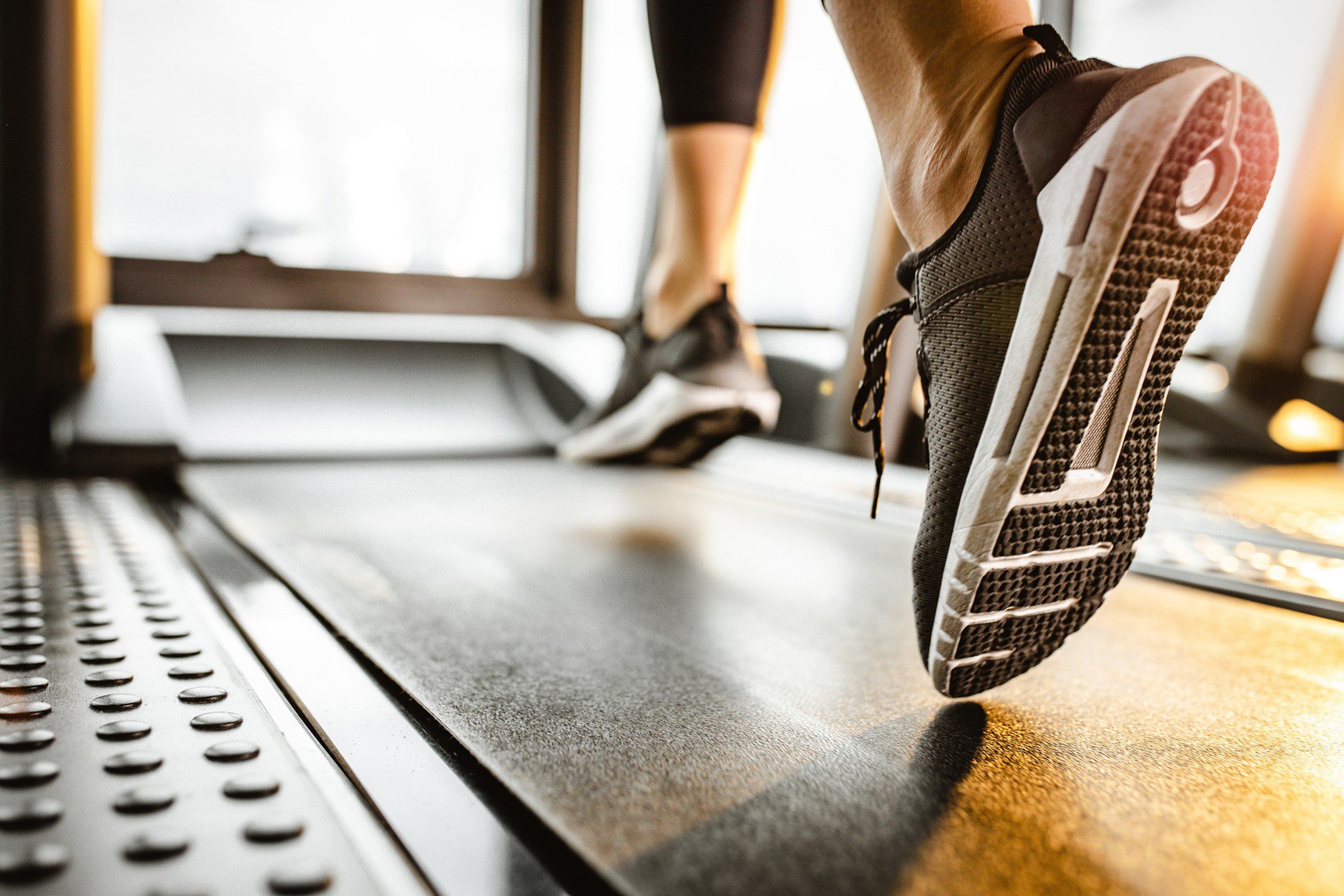


I know that one of the most important things you can do for yourself is to drink enough water. Drinking water is essential for our bodies to function properly. It helps to regulate body temperature, lubricate joints, and transport nutrients to our cells. In this article, I will discuss the many benefits of drinking water for weight loss, hydration, metabolism, appetite, calorie intake, body fat, diet, nutrition, exercise, dehydration, and electrolyte balance. I will also explore the different types of water, how much water you should drink daily, and provide tips for increasing your water intake.
What are the benefits of drinking water for weight loss?
If you are looking to lose weight, drinking water can be a powerful tool in your weight loss journey. Drinking water can help you feel fuller, which can lead to a decrease in calorie intake. Studies have shown that drinking water before meals can reduce calorie intake by up to 13%. Additionally, drinking water can help to increase metabolism. When you are dehydrated, your body’s metabolism slows down. Drinking water can help to increase your metabolism and burn more calories throughout the day.
Another benefit of drinking water for weight loss is that it can help to reduce water retention. When you are dehydrated, your body tends to hold onto water, which can lead to water weight gain. Drinking more water can help to flush out excess water and reduce water retention.
What about other health benefits of drinking water?
- Water makes your skin look healthy and glowing (see study).
- Drinking water can help you think better and concentrate more.
- Water helps your body control how hard your heart is working and keeps your blood flowing smoothly.
- Water helps your body get rid of waste and toxins.
- Drinking water can make you feel more energized and less tired.
- Water is good for your muscles and joints, and can help you exercise better.
- When you drink enough water, it can help you maintain a healthy weight
Hydration and Metabolism
Proper hydration is essential for a healthy metabolism. Water is necessary for the body to break down food and convert it into energy. When you are dehydrated, your body’s metabolism slows down, which can lead to weight gain. Drinking water can help to increase your metabolism and burn more calories throughout the day.
Additionally, drinking water can help to regulate body temperature. When you are dehydrated, your body has a harder time regulating temperature, which can lead to heat exhaustion or heat stroke.
Drinking water has been linked to increased metabolism. One study found that drinking 16 ounces (470 mL) of cold water boosted metabolism by about 24-30% over a period of 30-40 minutes. This means that drinking cold water can help your body burn more calories and therefore help you lose fat.
How Drinking Water Affects Appetite and Calorie Intake
Drinking water can help to reduce appetite and calorie intake. When you drink water, it fills up your stomach, which can help you feel fuller and reduce hunger. Studies have shown that drinking water before meals can reduce calorie intake by up to 13%.
Additionally, drinking water can help to reduce cravings for sugary and high-calorie foods. When you are dehydrated, your body can sometimes mistake thirst for hunger, leading to increased calorie intake.
The Relationship Between Drinking Water and Body Fat
Drinking water can help to reduce body fat. Studies have shown that drinking water can increase the breakdown of fat and increase fat loss. A 12 week study found that if you drink water before each meal, you might lose 2 kilograms (that’s the same as 4.4 pounds!) over a period of 12 weeks. Additionally, drinking water can help to reduce water retention, which can lead to a decrease in body fat.
The Role of Water in a Healthy Diet and Nutrition
Drinking water is an essential part of a healthy diet and nutrition. Water is necessary for the body to break down food and convert it into energy. Additionally, water helps to transport nutrients to our cells and removes waste from our bodies.
The Impact of Water on Exercise Performance
Drinking water is essential for exercise performance. When you are dehydrated, your body’s performance can suffer, and you may experience fatigue, cramps, and dizziness. Drinking water before, during, and after exercise can help to prevent dehydration and improve exercise performance.
Dehydration and Electrolyte Balance
Dehydration can lead to an imbalance of electrolytes in the body, which can lead to muscle cramps, fatigue, and dizziness. Electrolytes are essential minerals that are necessary for the body to function properly. Drinking water can help to prevent dehydration and maintain electrolyte balance.
Types of Water – Mineral Water, Tap Water, and Bottled Water
There are various types of water, including mineral water, tap water, and bottled water. Mineral water is naturally sourced and contains minerals like calcium and magnesium. Tap water is treated with chemicals to remove impurities and is often fortified with fluoride. Bottled water can come from various sources and may or may not be treated with chemicals.
How Much Water Should You Drink Daily?
The amount of water you should drink daily depends on various factors, including your age, weight, activity level, and climate. A general guideline is to drink eight 8-ounce glasses of water per day, but some people may need more or less.
Tips for Increasing Your Water Intake
If you struggle to drink enough water, there are several tips you can use to increase your water intake. You can try carrying a water bottle with you throughout the day or setting reminders to drink water. Additionally, you can try adding flavor to your water with fruits like lemon or cucumber.
Studies on Drinking Water for Weight Loss and Fat Loss
Several studies have shown that drinking water can be a powerful tool for weight loss and fat loss. One study found that drinking 500 ml of water before meals can lead to significant weight loss over 8 weeks. In that study, body fat, waist circumference decreased, and appetites were suppressed.
Drinking Water During a Fast
If you are fasting, drinking water is essential to stay hydrated and maintain electrolyte balance. Additionally, drinking water can help to reduce hunger and cravings during a fast.
Conclusion
Drinking water is essential for our bodies to function properly. It can help with weight loss, hydration, metabolism, appetite, calorie intake, body fat, diet, nutrition, exercise, dehydration, and electrolyte balance. There are various types of water, and the amount of water you should drink daily depends on several factors. With the tips provided, you can increase your water intake and enjoy the many benefits of drinking water.
Drink more water today and see how it can improve your health and wellness!
References:
Corney RA, Sunderland C, James LJ. Immediate pre-meal water ingestion decreases voluntary food intake in lean young males. Eur J Nutr. 2016 Mar;55(2):815-819. doi: 10.1007/s00394-015-0903-4. Epub 2015 Apr 18. PMID: 25893719.
Vij VA, Joshi AS. Effect of excessive water intake on body weight, body mass index, body fat, and appetite of overweight female participants. J Nat Sci Biol Med. 2014 Jul;5(2):340-4. doi: 10.4103/0976-9668.136180. PMID: 25097411; PMCID: PMC4121911.
Boschmann M, Steiniger J, Hille U, Tank J, Adams F, Sharma AM, Klaus S, Luft FC, Jordan J. Water-induced thermogenesis. J Clin Endocrinol Metab. 2003 Dec;88(12):6015-9. doi: 10.1210/jc.2003-030780. PMID: 14671205.
Dennis EA, Dengo AL, Comber DL, Flack KD, Savla J, Davy KP, Davy BM. Water consumption increases weight loss during a hypocaloric diet intervention in middle-aged and older adults. Obesity (Silver Spring). 2010 Feb;18(2):300-7. doi: 10.1038/oby.2009.235. Epub 2009 Aug 6. PMID: 19661958; PMCID: PMC2859815.
Editor's Pick



I know that one of the most important things you can do for yourself is to drink enough water. Drinking water is essential for our bodies to function properly. It helps to regulate body temperature, lubricate joints, and transport nutrients to our cells. In this article, I will discuss the many benefits of drinking water for weight loss, hydration, metabolism, appetite, calorie intake, body fat, diet, nutrition, exercise, dehydration, and electrolyte balance. I will also explore the different types of water, how much water you should drink daily, and provide tips for increasing your water intake.
What are the benefits of drinking water for weight loss?
If you are looking to lose weight, drinking water can be a powerful tool in your weight loss journey. Drinking water can help you feel fuller, which can lead to a decrease in calorie intake. Studies have shown that drinking water before meals can reduce calorie intake by up to 13%. Additionally, drinking water can help to increase metabolism. When you are dehydrated, your body’s metabolism slows down. Drinking water can help to increase your metabolism and burn more calories throughout the day.
Another benefit of drinking water for weight loss is that it can help to reduce water retention. When you are dehydrated, your body tends to hold onto water, which can lead to water weight gain. Drinking more water can help to flush out excess water and reduce water retention.
What about other health benefits of drinking water?
- Water makes your skin look healthy and glowing (see study).
- Drinking water can help you think better and concentrate more.
- Water helps your body control how hard your heart is working and keeps your blood flowing smoothly.
- Water helps your body get rid of waste and toxins.
- Drinking water can make you feel more energized and less tired.
- Water is good for your muscles and joints, and can help you exercise better.
- When you drink enough water, it can help you maintain a healthy weight
Hydration and Metabolism
Proper hydration is essential for a healthy metabolism. Water is necessary for the body to break down food and convert it into energy. When you are dehydrated, your body’s metabolism slows down, which can lead to weight gain. Drinking water can help to increase your metabolism and burn more calories throughout the day.
Additionally, drinking water can help to regulate body temperature. When you are dehydrated, your body has a harder time regulating temperature, which can lead to heat exhaustion or heat stroke.
Drinking water has been linked to increased metabolism. One study found that drinking 16 ounces (470 mL) of cold water boosted metabolism by about 24-30% over a period of 30-40 minutes. This means that drinking cold water can help your body burn more calories and therefore help you lose fat.
How Drinking Water Affects Appetite and Calorie Intake
Drinking water can help to reduce appetite and calorie intake. When you drink water, it fills up your stomach, which can help you feel fuller and reduce hunger. Studies have shown that drinking water before meals can reduce calorie intake by up to 13%.
Additionally, drinking water can help to reduce cravings for sugary and high-calorie foods. When you are dehydrated, your body can sometimes mistake thirst for hunger, leading to increased calorie intake.
The Relationship Between Drinking Water and Body Fat
Drinking water can help to reduce body fat. Studies have shown that drinking water can increase the breakdown of fat and increase fat loss. A 12 week study found that if you drink water before each meal, you might lose 2 kilograms (that’s the same as 4.4 pounds!) over a period of 12 weeks. Additionally, drinking water can help to reduce water retention, which can lead to a decrease in body fat.
The Role of Water in a Healthy Diet and Nutrition
Drinking water is an essential part of a healthy diet and nutrition. Water is necessary for the body to break down food and convert it into energy. Additionally, water helps to transport nutrients to our cells and removes waste from our bodies.
The Impact of Water on Exercise Performance
Drinking water is essential for exercise performance. When you are dehydrated, your body’s performance can suffer, and you may experience fatigue, cramps, and dizziness. Drinking water before, during, and after exercise can help to prevent dehydration and improve exercise performance.
Dehydration and Electrolyte Balance
Dehydration can lead to an imbalance of electrolytes in the body, which can lead to muscle cramps, fatigue, and dizziness. Electrolytes are essential minerals that are necessary for the body to function properly. Drinking water can help to prevent dehydration and maintain electrolyte balance.
Types of Water – Mineral Water, Tap Water, and Bottled Water
There are various types of water, including mineral water, tap water, and bottled water. Mineral water is naturally sourced and contains minerals like calcium and magnesium. Tap water is treated with chemicals to remove impurities and is often fortified with fluoride. Bottled water can come from various sources and may or may not be treated with chemicals.
How Much Water Should You Drink Daily?
The amount of water you should drink daily depends on various factors, including your age, weight, activity level, and climate. A general guideline is to drink eight 8-ounce glasses of water per day, but some people may need more or less.
Tips for Increasing Your Water Intake
If you struggle to drink enough water, there are several tips you can use to increase your water intake. You can try carrying a water bottle with you throughout the day or setting reminders to drink water. Additionally, you can try adding flavor to your water with fruits like lemon or cucumber.
Studies on Drinking Water for Weight Loss and Fat Loss
Several studies have shown that drinking water can be a powerful tool for weight loss and fat loss. One study found that drinking 500 ml of water before meals can lead to significant weight loss over 8 weeks. In that study, body fat, waist circumference decreased, and appetites were suppressed.
Drinking Water During a Fast
If you are fasting, drinking water is essential to stay hydrated and maintain electrolyte balance. Additionally, drinking water can help to reduce hunger and cravings during a fast.
Conclusion
Drinking water is essential for our bodies to function properly. It can help with weight loss, hydration, metabolism, appetite, calorie intake, body fat, diet, nutrition, exercise, dehydration, and electrolyte balance. There are various types of water, and the amount of water you should drink daily depends on several factors. With the tips provided, you can increase your water intake and enjoy the many benefits of drinking water.
Drink more water today and see how it can improve your health and wellness!
References:
Corney RA, Sunderland C, James LJ. Immediate pre-meal water ingestion decreases voluntary food intake in lean young males. Eur J Nutr. 2016 Mar;55(2):815-819. doi: 10.1007/s00394-015-0903-4. Epub 2015 Apr 18. PMID: 25893719.
Vij VA, Joshi AS. Effect of excessive water intake on body weight, body mass index, body fat, and appetite of overweight female participants. J Nat Sci Biol Med. 2014 Jul;5(2):340-4. doi: 10.4103/0976-9668.136180. PMID: 25097411; PMCID: PMC4121911.
Boschmann M, Steiniger J, Hille U, Tank J, Adams F, Sharma AM, Klaus S, Luft FC, Jordan J. Water-induced thermogenesis. J Clin Endocrinol Metab. 2003 Dec;88(12):6015-9. doi: 10.1210/jc.2003-030780. PMID: 14671205.
Dennis EA, Dengo AL, Comber DL, Flack KD, Savla J, Davy KP, Davy BM. Water consumption increases weight loss during a hypocaloric diet intervention in middle-aged and older adults. Obesity (Silver Spring). 2010 Feb;18(2):300-7. doi: 10.1038/oby.2009.235. Epub 2009 Aug 6. PMID: 19661958; PMCID: PMC2859815.








